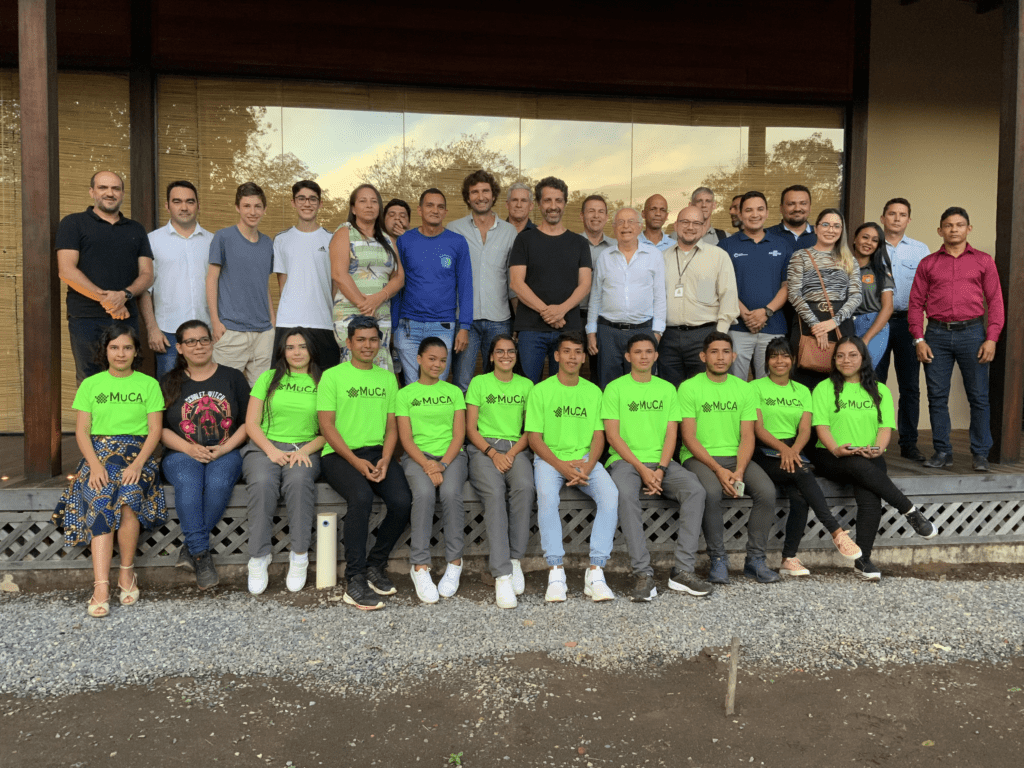The team of the Museum of Science of the Amazon (MuCA) located in Belterra, Pará, received on July 8th the Ministry of Environment, Chico Mendes Institute for Biodiversity Conservation (ICMBio), IBAMA and the Secretariat of the Amazon and Environmental Services (SAS) to sign the protocol of intent on the implementation of the Quintais Agroflorestais da Amazônia project. This is the expansion and consolidation of a pilot project already underway, based on bioeconomy and income generation for local communities. The event takes place in the MuCA auditorium, in Vila Americana, Belterra.
In partnership with the federal government, MuCA has been working experimentally with 1,200 families who live in the Tapajós National Forest Conservation Unit (Flona). The main purpose of this action is to produce biodiversity inputs such as cocoa, saffron, mushrooms, medicinal plants and microalgae. This ongoing project aims to encourage conservation units to go beyond their role of nature protection and contribute to the sustainable production of zero carbon. The initiative was presented at COP 26 (United Nations Conference on Climate Change), held in November in Glasgow, Scotland.
“It is a strategic action for social development, as it creates food security for the population, but is also promising for economic advance as it expands the scope of exports of forest products”, says Luiz Felipe Moura, general coordinator of MuCA and director of sustainability and social development at AMA Brasil, a civil society organization of public interest (Oscip) dedicated to the preservation of historical, artistic and environmental heritage linked to cultural and social development.
According to Moura, the Agroforestry Backyards are an opportunity for the approximately 20 million people who live in Brazilian forests to generate their own wealth and place the country at the forefront of agroforestry. “Requiring land demarcation without a good plan on how to use it to reduce inequality does not solve the problem”, he adds. On June 14th, the MuCA team had already met with members of the Ministry of Environment, Chico Mendes Institute for Biodiversity Conservation and Embrapa to ensure legal certainty for forestry production. On the occasion, an agreement was also signed between AMA Brasil and the Federation of Traditional Organizations and Communities of the Tapajós National Forest, establishing a partnership in the production of bioinputs to supply the industry. “With a structure in Amazon, we are leading studies with animals, plants and native microorganisms of high biological relevance for the development of foods, biocosmetics and phytopharmaceuticals” says the general coordinator of MuCA.
